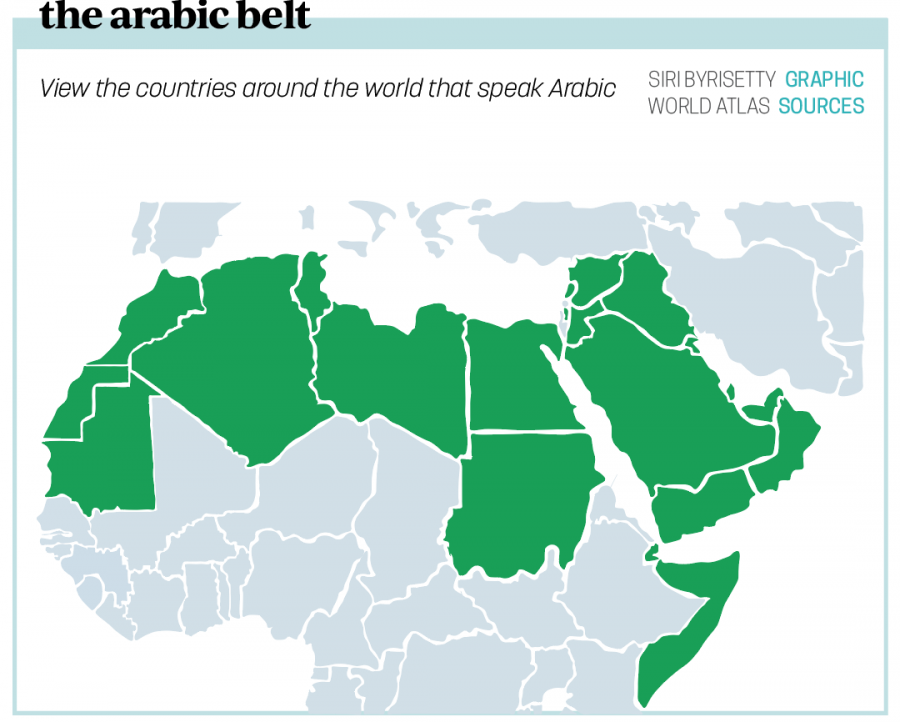Junior Sarah Alhaddad, who is bilingual, said she speaks mostly Arabic at home with her family.
She said, “I’m from the Middle East, my parents are from the Middle East, my whole family is from the Middle East, so the fact that I speak Arabic, it really helps me feel more connected to them, and, you know, living in America, it can sometimes make me lose sight of my identity, but being able to speak Arabic at home and being able to speak Arabic when I go back to the Middle East, it makes me feel more grounded.”
According to Babbel, the language learning platform, Arabic is the fifth most spoken language in the world, with more than one million speakers in the United States itself. The UN Educational, Scientific and Cultural Organization (UNESCO) established December 18 as World Arabic Language Day in 2012 for the purpose of celebrating the language and multilingualism more broadly.
Alhaddad said she appreciates the increased recognition.
“Honestly I think it’s really amazing,” she said. “I’ve grown up here and I’ve been looking for that and I just get so excited when I hear stuff like that. That recognition means a lot to me, it makes me feel more welcomed here.”
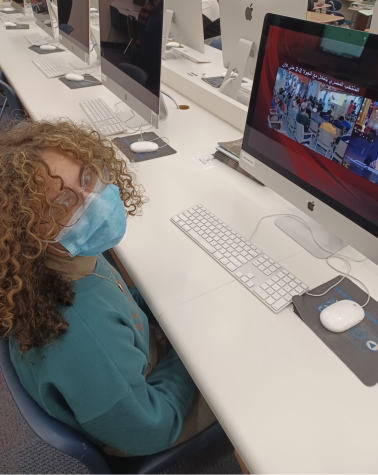
Junior Sarah Dawood said she feels similarly.
“I think it’s great, to be honest. It makes me happy. It’s easier for us to say that we’re Arab or Egyptian when more and more people understand how we are. [The] same way other ethnicities and races are being recognized, I think it’s important for us to get even that minuscule recognition,” she said.
Dawood said being able to speak Arabic allows her to have better communication with her family. “[The Arabic language] helps me connect with my relatives, even my cousins that live here [in the United States], it’s easier for me to talk to them in Arabic rather than English. I know they’ll understand,” she said.
For Alhaddad, she said the beauty and depth of Arabic make the language so appealing to her.
“I just think that Arabic is a really beautiful language and [it] definitely does have a richer vocabulary. I think it’s been around for a lot longer than English has, and so it has a really huge vocabulary.”



















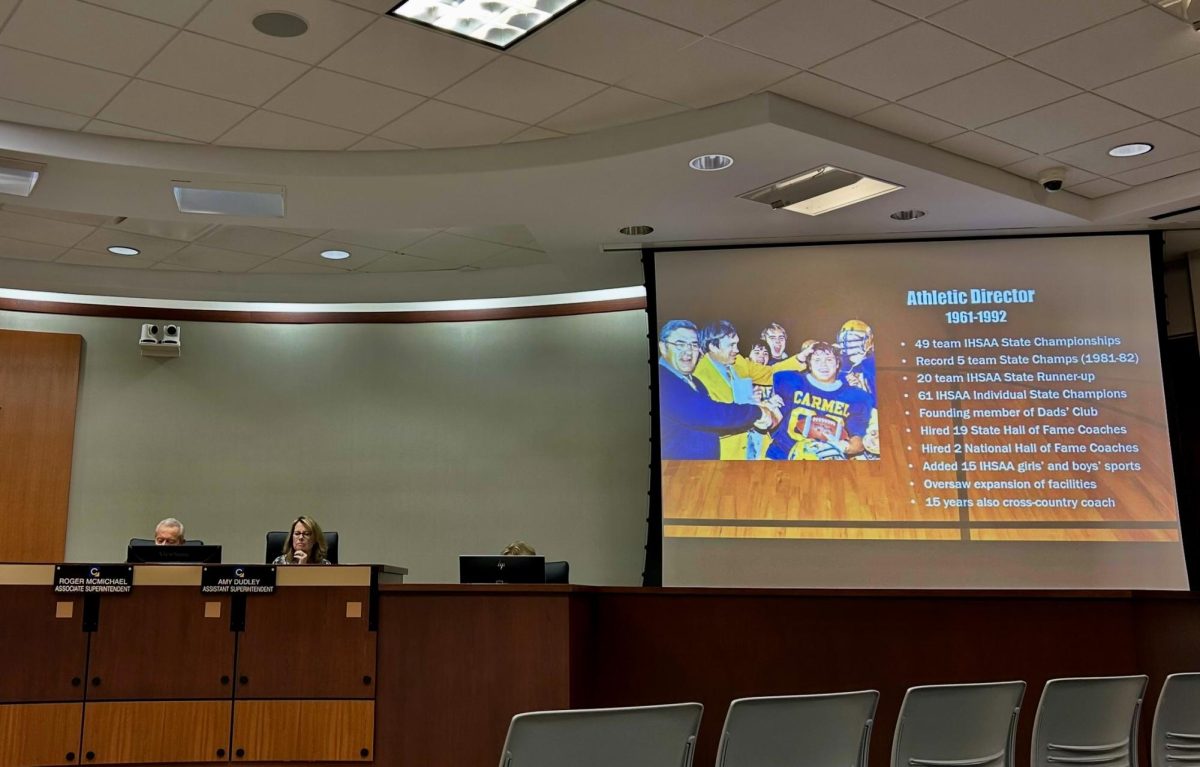
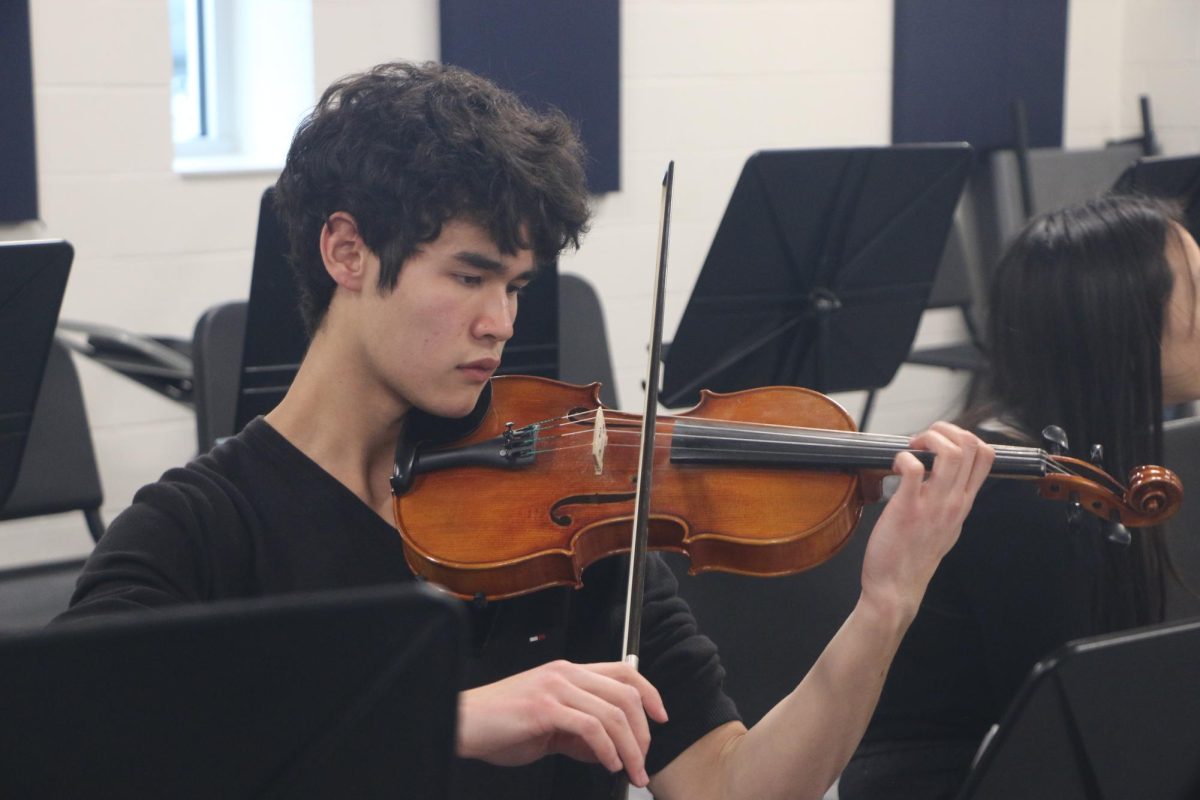




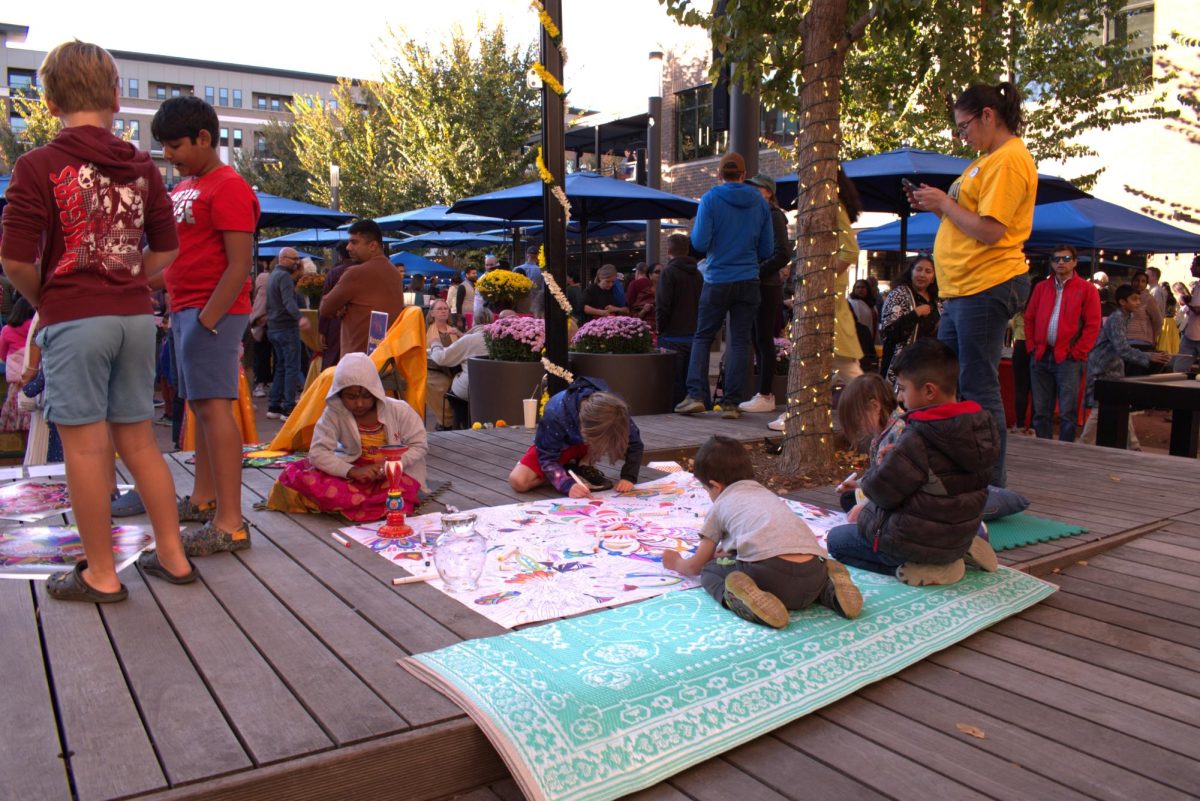


![Keep the New Gloves: Fighter Safety Is Non-Negotiable [opinion]](https://hilite.org/wp-content/uploads/2024/12/ufcglovescolumncover-1200x471.png)






!["Wicked" poster controversy sparks a debate about the importance of accuracy versus artistic freedom [opinion]](https://hilite.org/wp-content/uploads/2024/11/riva-perspective-cover-1200x471.jpg)





































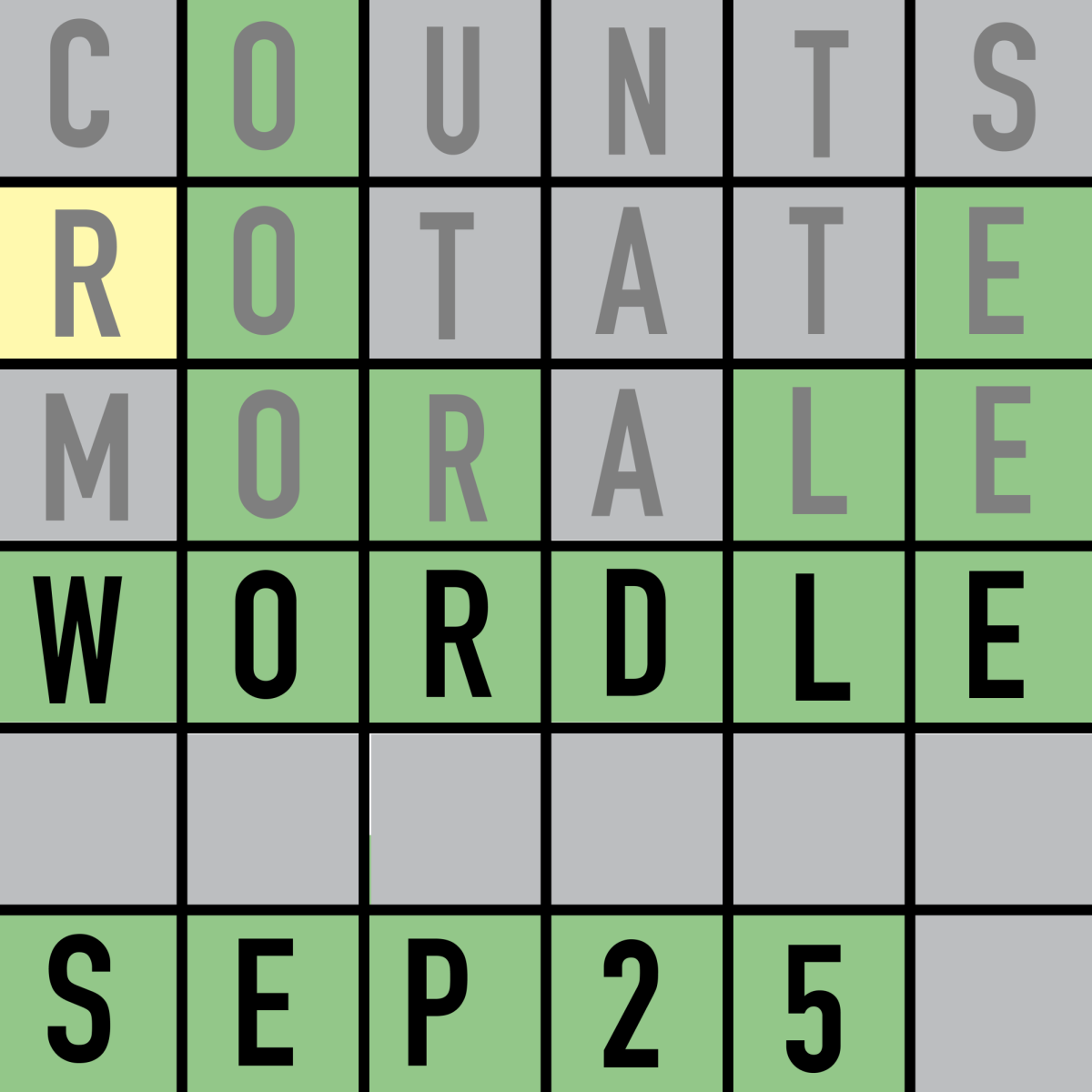



![Review: “We Live in Time” leaves you wanting more [MUSE]](https://hilite.org/wp-content/uploads/2024/12/IMG_6358.jpg)
![Review: The premise of "Culinary Class Wars" is refreshingly unique and deserving of more attention [MUSE]](https://hilite.org/wp-content/uploads/2024/12/MUSE-class-wars-cover-2.png)
![Introducing: "The Muses Who Stole Christmas," a collection of reviews for you to follow through winter [MUSE]](https://hilite.org/wp-content/uploads/2024/12/winter-muse-4.gif)
![Review: "Meet Me Next Christmas" is a cheesy and predictable watch, but it was worth every minute [MUSE]](https://hilite.org/wp-content/uploads/2024/11/AAAAQVfRG2gwEuLhXTGm3856HuX2MTNs31Ok7fGgIVCoZbyeugVs1F4DZs-DgP0XadTDrnXHlbQo4DerjRXand9H1JKPM06cENmLl2RsINud2DMqIHzpXFS2n4zOkL3dr5m5i0nIVb3Cu3ataT_W2zGeDAJNd_E-1200x884.jpg)
![Review: "Gilmore Girls", the perfect fall show [MUSE]](https://hilite.org/wp-content/uploads/2024/11/gilmore-girls.png)
![Review in Print: Maripaz Villar brings a delightfully unique style to the world of WEBTOON [MUSE]](https://hilite.org/wp-content/uploads/2023/12/maripazcover-1200x960.jpg)
![Review: “The Sword of Kaigen” is a masterpiece [MUSE]](https://hilite.org/wp-content/uploads/2023/11/Screenshot-2023-11-26-201051.png)
![Review: Gateron Oil Kings, great linear switches, okay price [MUSE]](https://hilite.org/wp-content/uploads/2023/11/Screenshot-2023-11-26-200553.png)
![Review: “A Haunting in Venice” is a significant improvement from other Agatha Christie adaptations [MUSE]](https://hilite.org/wp-content/uploads/2023/11/e7ee2938a6d422669771bce6d8088521.jpg)
![Review: A Thanksgiving story from elementary school, still just as interesting [MUSE]](https://hilite.org/wp-content/uploads/2023/11/Screenshot-2023-11-26-195514-987x1200.png)
![Review: "When I Fly Towards You", cute, uplifting youth drama [MUSE]](https://hilite.org/wp-content/uploads/2023/09/When-I-Fly-Towards-You-Chinese-drama.png)
![Postcards from Muse: Hawaii Travel Diary [MUSE]](https://hilite.org/wp-content/uploads/2023/09/My-project-1-1200x1200.jpg)
![Review: "Ladybug & Cat Noir: The Movie," departure from original show [MUSE]](https://hilite.org/wp-content/uploads/2023/09/Ladybug__Cat_Noir_-_The_Movie_poster.jpg)
![Review in Print: "Hidden Love" is the cute, uplifting drama everyone needs [MUSE]](https://hilite.org/wp-content/uploads/2023/09/hiddenlovecover-e1693597208225-1030x1200.png)
![Review in Print: "Heartstopper" is the heartwarming queer romance we all need [MUSE]](https://hilite.org/wp-content/uploads/2023/08/museheartstoppercover-1200x654.png)




